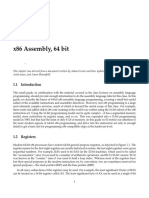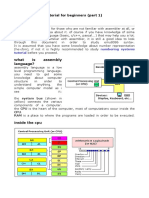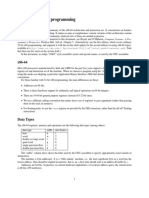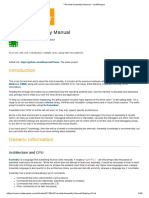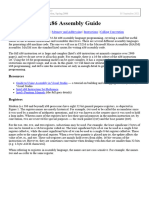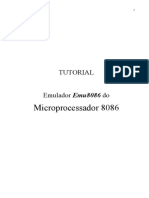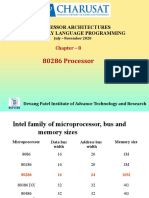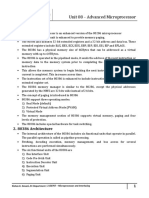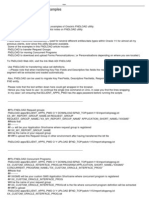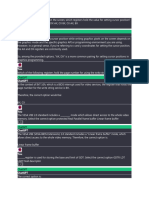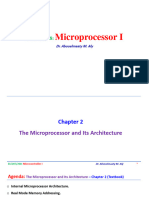0% found this document useful (0 votes)
167 views28 pagesx86 Assembly and GCC __asm__ Guide
This document provides an overview of x86 assembly syntax and GCC inline assembly. It covers basic x86 registers and addressing modes, common instruction syntax in AT&T format, typical assembly idioms, and the syntax for inline assembly statements in GCC. The document provides prerequisites and outlines basic x86 assembly concepts to set up an introduction to assembly programming.
Uploaded by
Paolo BonziniCopyright
© Attribution ShareAlike (BY-SA)
We take content rights seriously. If you suspect this is your content, claim it here.
Available Formats
Download as ODP, PDF or read online on Scribd
0% found this document useful (0 votes)
167 views28 pagesx86 Assembly and GCC __asm__ Guide
This document provides an overview of x86 assembly syntax and GCC inline assembly. It covers basic x86 registers and addressing modes, common instruction syntax in AT&T format, typical assembly idioms, and the syntax for inline assembly statements in GCC. The document provides prerequisites and outlines basic x86 assembly concepts to set up an introduction to assembly programming.
Uploaded by
Paolo BonziniCopyright
© Attribution ShareAlike (BY-SA)
We take content rights seriously. If you suspect this is your content, claim it here.
Available Formats
Download as ODP, PDF or read online on Scribd
/ 28





























